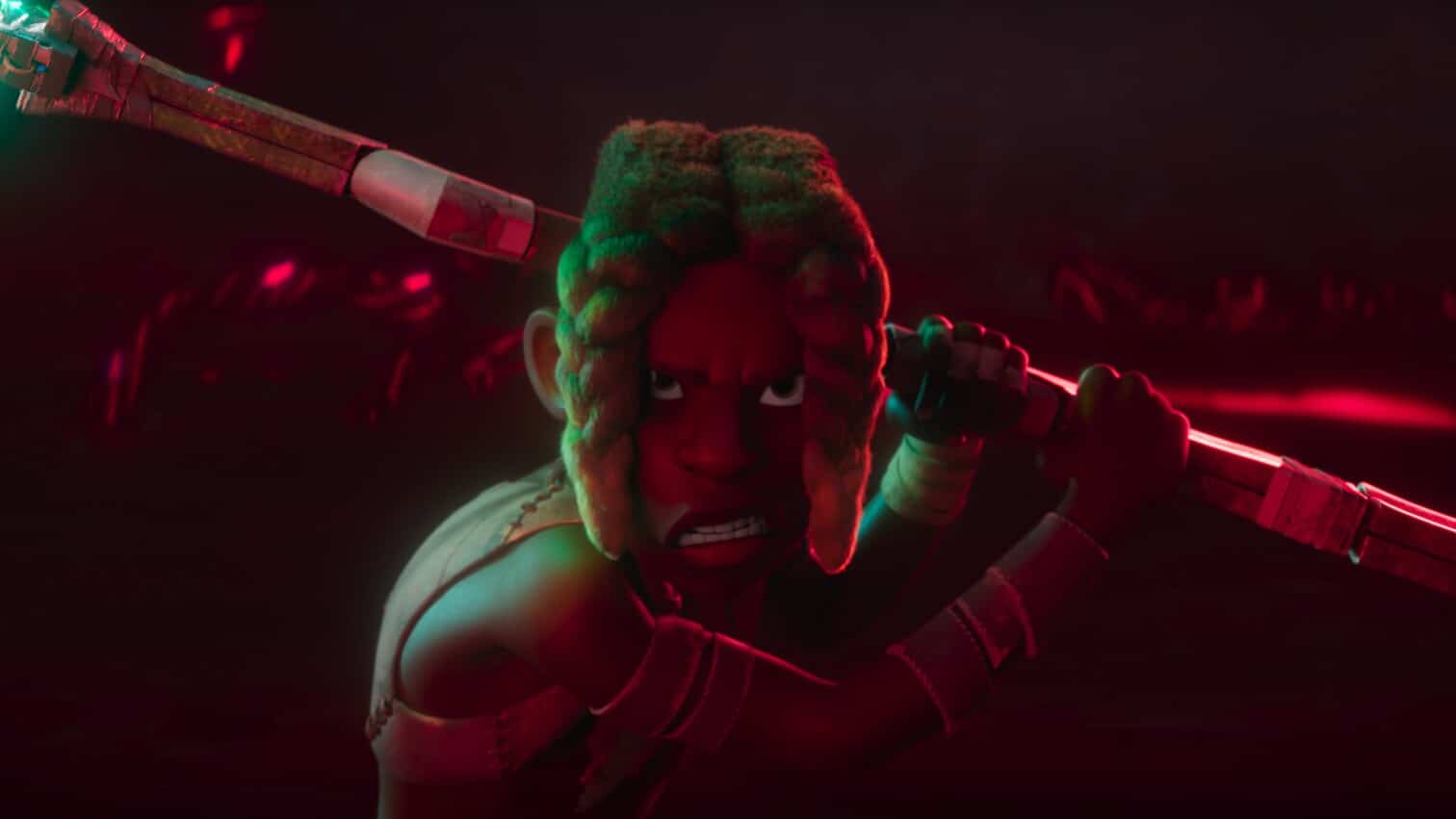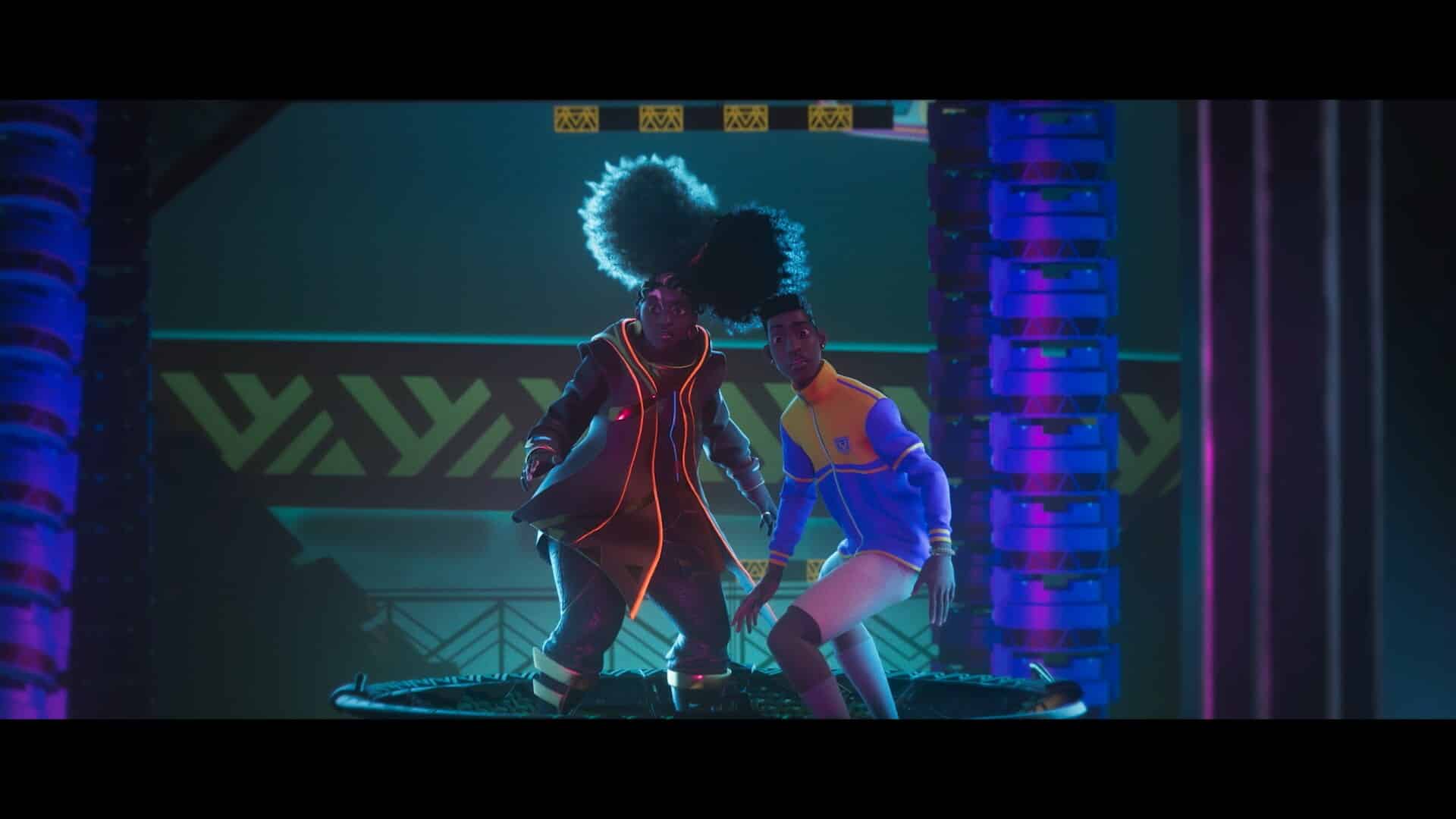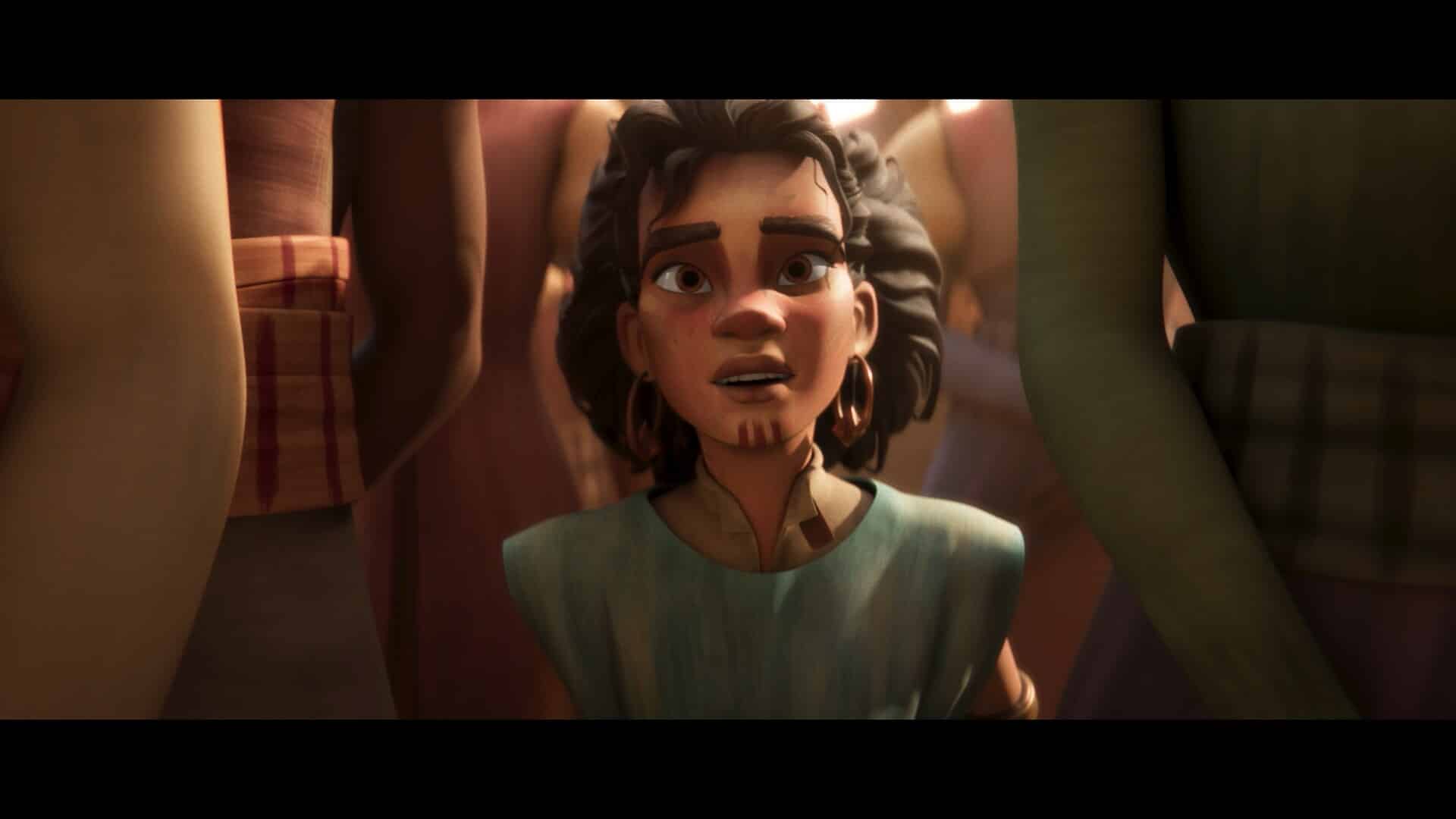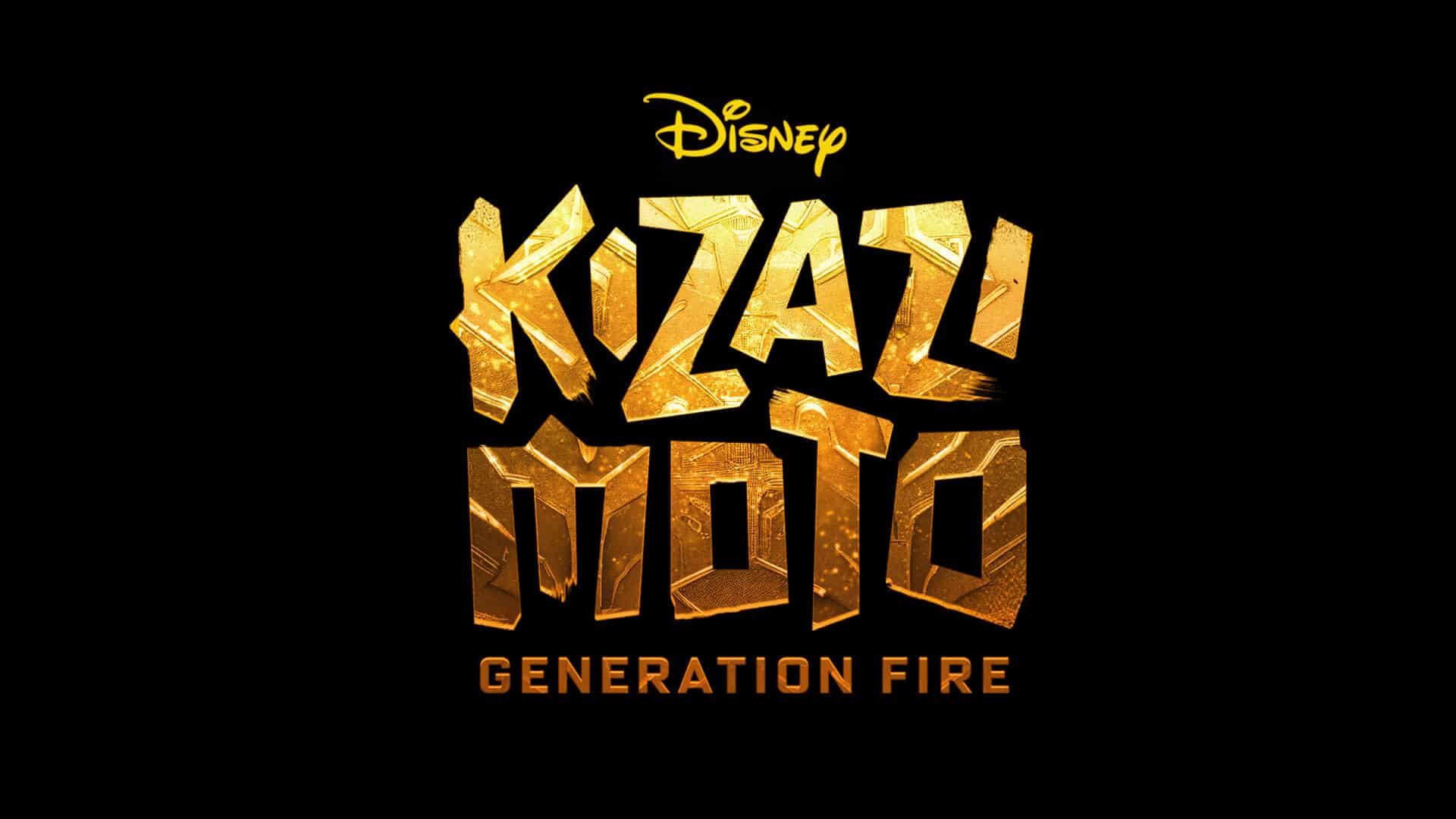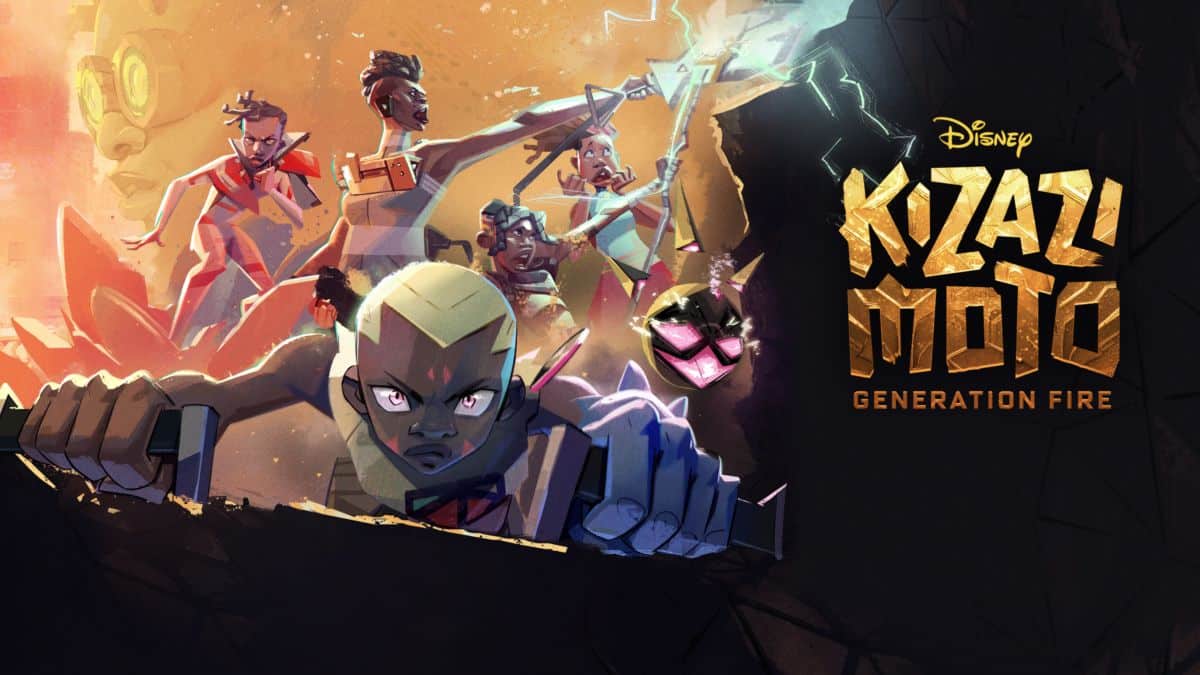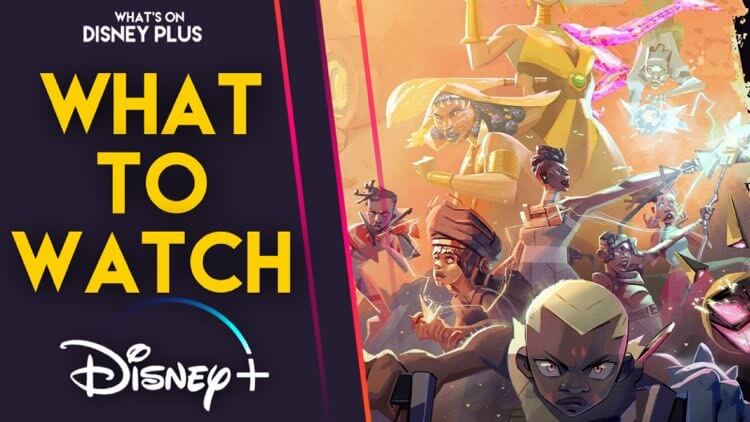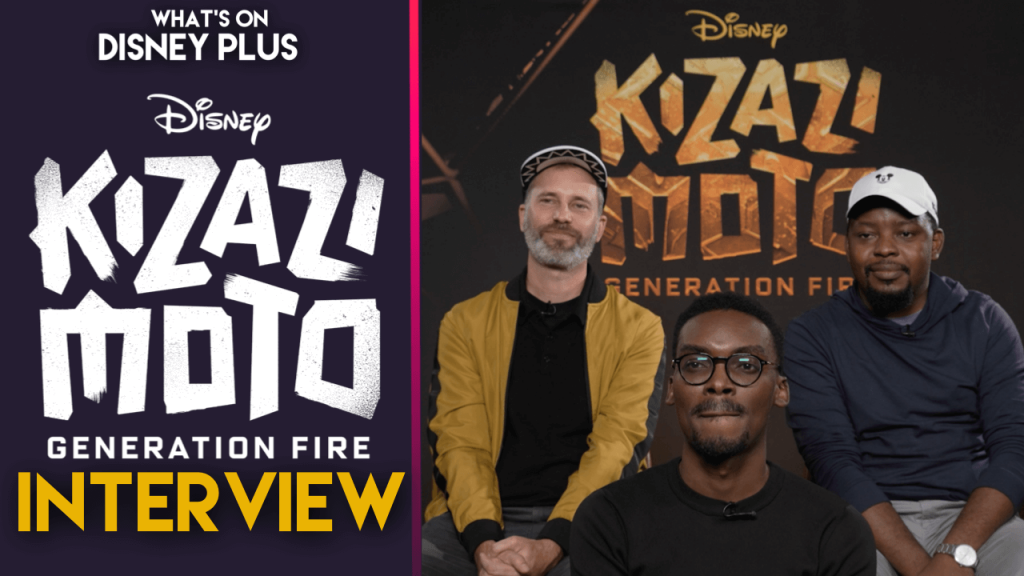
“Kizazi Moto: Generation Fire” | Anthony Silverston, Raymond Malinga & Pious Nyenyewa – Exclusive Interview
In July, Disney is releasing a brand-new collection of shorts called “Kizazi Moto: Generation Fire”, which is an action-packed animated sci-fi anthology that presents ten futuristic visions from Africa inspired by the continent’s diverse histories and cultures. Executive produced by Oscar-winning director Peter Ramsey, these ten short films made by a new generation of animation creators draw on uniquely African perspectives to imagine brave new worlds of advanced technology, aliens, spirits, and monsters. This is Africa, as you’ve never seen it before.
Recently, I got to speak with the show’s executive producer, Anthony Silverston, along with the directors of “Mukudzei” Pious Nyenyewa and “Herderboy” Raymond Malinga, about the upcoming short series.
How did you come down to the final ten shorts to be included in “Kizazi Moto: Generation Fire”?
Anthony Silverston – Yeah, it was quite a process. We first sort of scoured the continent’s directors and writers and artists, looking for people who had kind of made a mark in their field and we invited them to pitch. And we had a very sort of basic brief of just sort of an optimistic future of Africa and your own sort of personal story and narrowed, oh, just about 73 directors down to 30 in the end, shortlisted, which then Disney also looked at and we got down to 15, which we developed pitch decks for. And that process was quite useful to see how they all worked and which films, some of them overlapped a little bit, and whether it was thematically or just the central relationship. And ultimately, I think the 10 that we ended up with feel like they really covered that range of genres and visual styles and the directors all having very distinct voices and coming from different backgrounds and yeah, six countries
Where did the inspirations come from, the story for your short?
Pious Nyenyewa: Hi. I’m Pious, from Zimbabwe and my film is Kizazi and the inspiration just came from all the things we absorbed growing up, right. And that’s the good and the bad. We realized that, well, personally, I realized that I didn’t know a lot about my culture and there was this disconnection. You end up searching from where you came from and in that searching you discover a lot of heartbreaking things and then all of a sudden you have something to say, right. And in that moment you have all these bunch of things that you’re putting together and then they start crafting this picture, right. And because I was already doing animation, the picture started to look more like a narrative. And until at some point you feel, okay, this is the thing that I am going to say to the world if I was ever asked to speak. And when the moment arises or arose, I was able to pitch this film and went through this whole crazy development process to shave it down again, because once again, we had a lot of things, a lot of experiences to shave it down to one simple message that ended up being Kizazi.
Raymond Malinga: And I’m Raymond Malinga, director of Herder Boy. I’m from Uganda and I think, so my inspiration came from when I looked at what I was going through and what this opportunity presented, I wanted to tell the story of that, which is, we’ve been here, we’ve been trying to do this stuff, but haven’t been given the opportunity. And so my story development process came from the idea that I wanted to create a character and a world that spoke to this particular aspect, which is, hey, if you give us a chance, we can actually show you something different, something cool, something that you might have not seen before. And also to just overlap with that idea was the reason why I chose cattle herders, ’cause my film involves futuristic cattle herders, is that it’s one of the continents oldest professions. And I was looking for something that it was long overdue that needed an update, right. And I was like, if I can show the audience a pretty cool cattle herder, then probably can ignite something in someone out there and say, what else can we actually update? And my inspiration just came from just challenging what we think is how we should be telling our stories and just looking for opportunities to do it a different way.
Pious Nyenyewa: Absolutely. If I want to add, there’s also a curiosity of seeing what could we possibly have been out of the experiences that we had. In our film, we’ll briefly touch on colonialism and what that took away from us. We explore a hypothetical world of, well what if that didn’t happen? What could we have evolved into? There’s a sense of curiosity, again, that we want to share with the world. Hey, well you guys kind of pondered on this again.
What was the biggest challenge in making your shorts?
Pious Nyenyewa: Yeah. The two challenges, the first challenge is finding one message, right? Because we only got 10 minutes. It’s like, I know this is a great opportunity, but if you had one thing to say, what would that one thing be, right? That was very difficult ’cause there’s a lot that needs to be said. That’s from a message point of view, right, and understanding that you’re not making a documentary, you’re making an entertainment piece. Find one message, stick to that and make it very clear, right. That was very difficult because how do I throw away this other thing that’s very important to me, but you’re not throwing it away, just putting it on the side. That was very difficult. And then the second thing was about representation. From the creative aspect of it, it’s like, how do you communicate things that the creative team that’s across the ocean, how do you communicate all those cultural things?
Even though you give them references, they still don’t get it. You can see a picture, but you don’t know how to cook the meal. It’s meandering through the process of years of development to communicate how to do black skin, how to light an all black cast at night, how do you do that without overexposing the shot? How do you do black hair? How do you do black clothes and stuff like that. And how do you do it in a way that’s not offensive? That was a very difficult process, but we got it in the end. That was really great.
Raymond Malinga: I think for me, I agree obviously with Pius, but again, to add onto that, we’ve been hungry for this kind of opportunity for a long time. When you step into these shoes, what happens is that you have so much years and years of things that you want to put in here, but then you quickly learn how to say, well, what is the main message, right? And I think that, and another challenge for me is that just the amount of information that was coming in, right. We developed these shorts over three years, but I would say that we were thrown in the deep end, right. We were learning how to swim and there’s so many professionals, talented people around us and we’re just adapting really quickly. And I think it was a challenge, but I think we rose to the occasion and that’s all that matters in the end.
And for you, Andrew, what was the biggest challenge in making the series in general?
Anthony Silverston – I mean it’s almost back to your first question because the challenge was choosing only 10. There were so many great stories and so many great directors. I mean, part of that selection process was meeting them all. And you could just see that there was so much burning desire to tell a story. Yeah. I think the project was a complex one, right?
Working over a pandemic with 10 films all kind of happening at a staggered time. And they’re basically feature films packed into 10 minutes. Emerging filmmakers, some of them were new to animation. Putting the right team around each project to make sure that it had its best chance at success. That was quite a process.
What has been your personal highlight working on “Kizai Moto: Generation Fire”?
Anthony Silverston – Well, I can go. Yeah, I can go first. For me, it almost starts at the end, ’cause it was a hard project, I won’t lie. But when we got to show the films in Los Angeles for the first time, and all the directors got to see one another’s work and you could just see how proud they were of themselves, of one another, I think they could really see what they’d done was important for the world. And I think that relief of having done a good job, because it’s been quite a responsibility for us all. I think to represent a whole country with one story, that kind of team morale that was created as well and the bonding that happened over the course of the project was incredible.
Raymond Malinga: For me, there’s so many answers to this question. There are a lot of things that happened, but I’m just going to do two. One is the incredible people I’ve met. Of course, Peter Ramsey, that’s crazy, really awesome to meet him. Ant, Trigger Fish team, whatever. But the directors, man, well, our films were made in isolation. For a long time we didn’t really know what the other person is really like. But when you meet all these guys in LA at the Afro Animation Summit, you’re like, oh my God, they’re all cool people. And they’re so inspiring. And I think that that was just, it’s like they’re my friends. I don’t know if they think I’m their friend, but, don’t hit me man, right? But they’re my friends, they have no choice. But I think then the other moment is this, when there was a, ’cause I own my own studio in my country, and Pius actually owns his own studio in Zimbabwe. And I think there was this moment at the Afro Animation Summit where I had the Kizazi Moto teaser trailer.
And I think our panel, we had had a panel, we had two panels. And after the first panel and then the second panel, there’s a young African American girl that came up and she was like, I came here looking for a job, right? But seeing you guys has made me ask myself, why aren’t I just trying to do something on my own? And I was like, hell yeah, right? Yeah, yeah. Heck yeah. Sorry. But that’s the thing. I felt the impact just from the teaser trailer and the trailers and hopefully from… And even listening to you guys who’ve been interviewing us. Your response is wild. That’s it. Those are three moments. Sorry.
Pious Nyenyewa: And quickly, I’ll say for me is two. The first one is when we saw first storyboard animatic and one of the coordinators, when you watched it with the temp music and the temp voices and everything, one of the coordinators switched off a camera. And then she said after that she was crying. I was just like, oh, we’re just doing this, right? And when she watched the whole thing, she cried. And I wasn’t expecting that. You know what I mean? And then it happened again. For me, it’s really said something about the message that we were putting across to the audience, that it really meant something. And it kind of broke my heart that she was crying, but it was good at the same time that it manages to get people that emotional. It was then, and it was at the Afro Sum in LA again, people I didn’t know, I needed to watch this, this thing that you didn’t know.
And the second part is watching my studio do some crazy visual effects for the film. And our stomachs were turning because this either could be the best moment of our lives or the worst moment because if we don’t deliver, right? But after they delivered and the execs were happy, we were like, really? Some studio in some Third World country was able to do this. For me it just spoke to number one, the story aspect for me as a director, but also as a production house, the ability for us to deliver something. Those are the best moments. And of course the amazing friends that I’ve gained along the way. Raymond is some random character from Uganda. It’s amazing. I like this guy.
“Kizazi Moto: Generation Fire” is coming to Disney+ on Wednesday, 5th July 2023.

